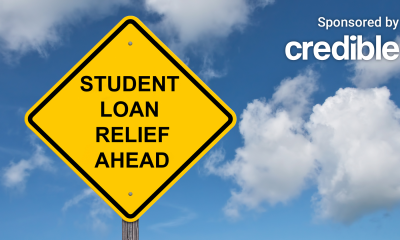Save Money
Financial Jargon Defined: Self-Insurance

As we said last month, the world of finance and investments is notorious for its extensive use of jargon. With a goal of enhancing financial literacy and making the finance world more transparent, we are committing to a “monthly jargon” post that will focus on debunking various financial terms that are continuously used sans explanation. This month, we are addressing “self-insurance.”
So, what exactly is “self-insurance,” aside from the clear denotation that the term involves insuring one’s self? Well, to put it in the simplest terms, self-insurance involves exactly that: ensuring, or financially covering, yourself. The inherent nature of insurance is to provide financial assurance in light of an unpredictable and potentially costly life event. Self-insurance involves setting aside your own funds to pay for a possible loss, as opposed to purchasing insurance and relying on an insurance company to cover a certain amount of the costs.
While insurance is designed to protect you against financial losses you can’t afford to bear, self-insurance comes into play like an emergency fund to cover losses you can afford. With self-insurance, you pay for unexpected costs with your own funds, from a medical procedure to water damage in your house, to theft or a fender bender; therefore, you are choosing to risk possibly incurring a loss that you’ll have to pay for out-of-pocket over spending money on premiums for coverage that you may never use. When you hear this explanation, you will most likely realize you already self-insure for quite a few things.
At times, self-insuring and paying out-of-pocket for certain losses have the potential to be more economical than buying insurance from a third party. Think of it this way: An insurance company aims to profit via high premiums, while the self-insurance route enables an individual to set aside money to be used directly for the cost of a potential incident, eliminating the cost of premiums. That being said, one of the downsides to self-insuring is taking on the risk of having a potentially costly incident occur. Before choosing the self-insurance route, make sure you thoroughly evaluate your financial situation, as third-party insurance may be the prudent financial decision to hedge against some of the costly, unpredictable expenses that life can bring.
Read the full article here

-

 Side Hustles6 days ago
Side Hustles6 days agoWhy the Best CEOs Think Like Anthropologists
-

 Make Money7 days ago
Make Money7 days agoEarn More in 2025: Top 10 High-Yield Savings Accounts Revealed
-

 Side Hustles4 days ago
Side Hustles4 days agoThis User-Friendly H&R Block Software Package is Only $40, While Supplies Last
-

 Side Hustles7 days ago
Side Hustles7 days ago10 Roles That Are Surprisingly Well-Suited for Outsourcing
-

 Side Hustles7 days ago
Side Hustles7 days agoWhat to Do If TikTok is Banned — How to Protect Your Brand
-

 Passive Income7 days ago
Passive Income7 days agoHow Pets Can Promote Better Health and Well-Being in the Workplace
-

 Investing4 days ago
Investing4 days agoTikTok faces US ban deadline as users brace for fallout By Reuters
-

 Personal Finance7 days ago
Personal Finance7 days agoBiden cancels more student loans with one week left to his term


















